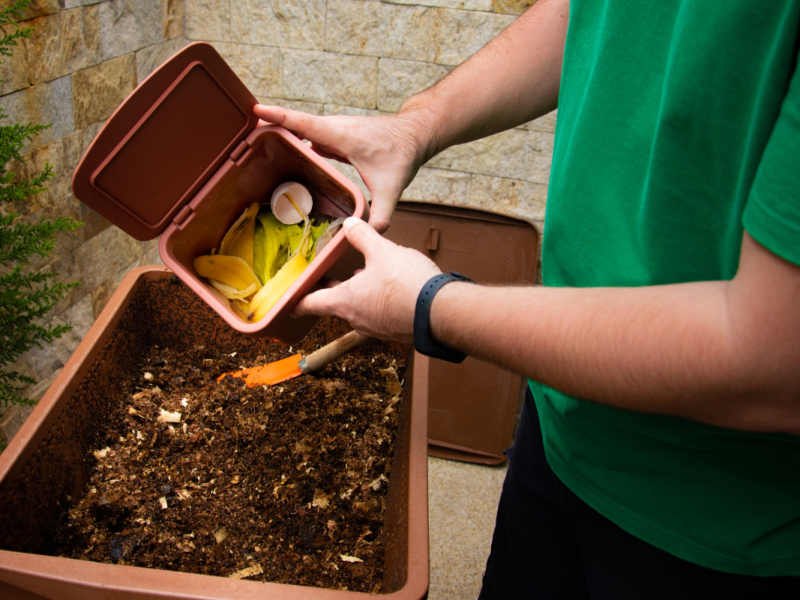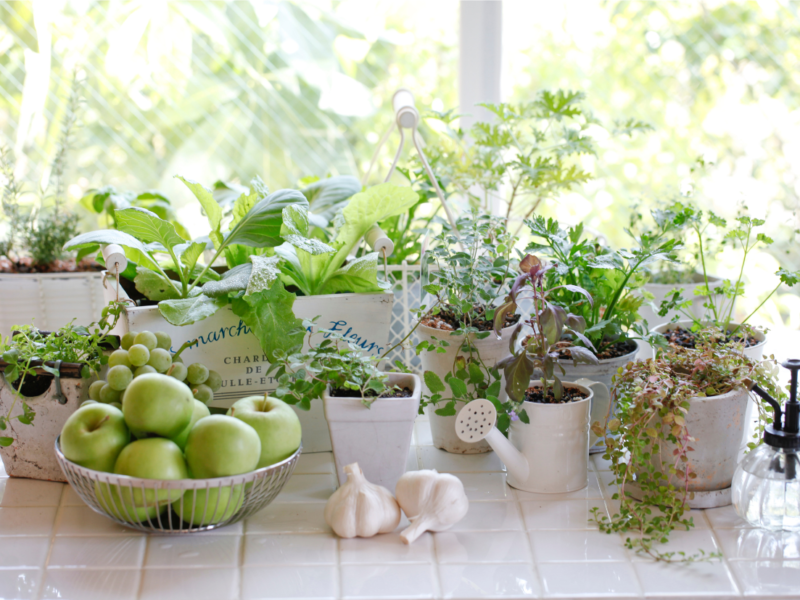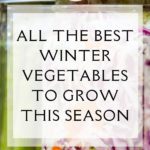Grow winter vegetables to keep your garden growing all year round! Many vegetables can be grown year-round in your garden, even when the temperature drops below freezing! These vegetables tend to be hardy and can withstand cold weather without much effort on your part. Some of them even grow better in the winter than they do in the summer heat! Here are all the best winter vegetables you can add to your garden this year.
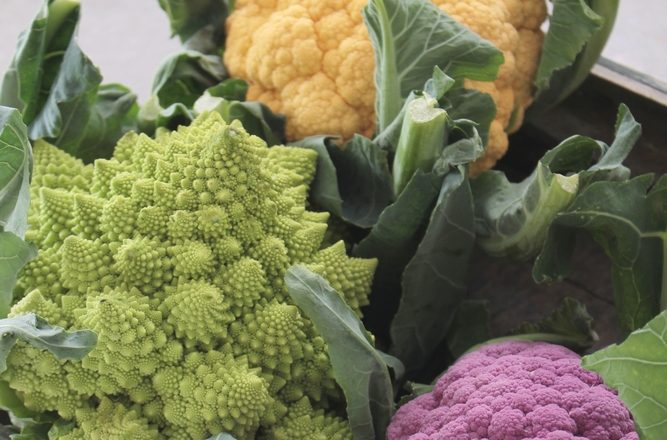
This article covers a comprehensive list of winter vegetable varieties that you can grow in your garden.
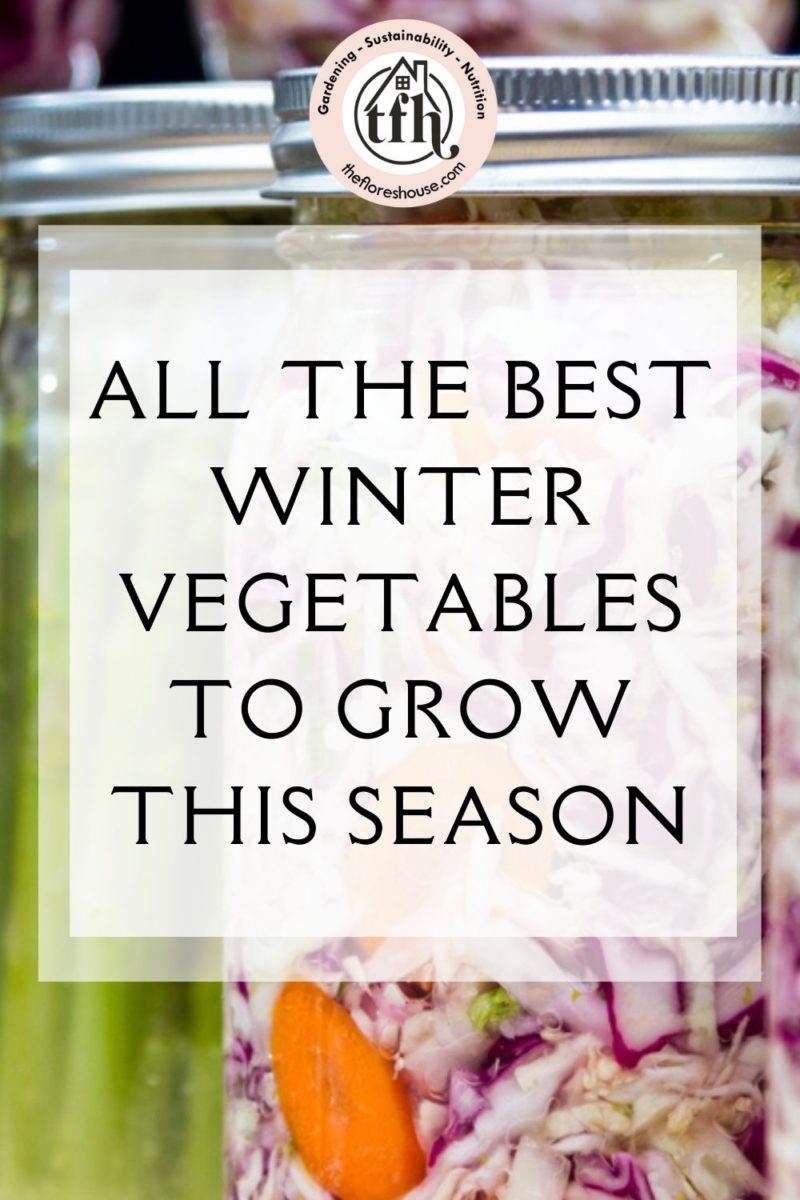
Growing winter vegetables means that you can keep your garden going all season. By planting various crops in the fall, you’ll have something to eat as soon as the weather cools down.
On top of it all, winter is a great time for gardeners because it is easier! There is less pest pressure and very little to maintain in the winter.
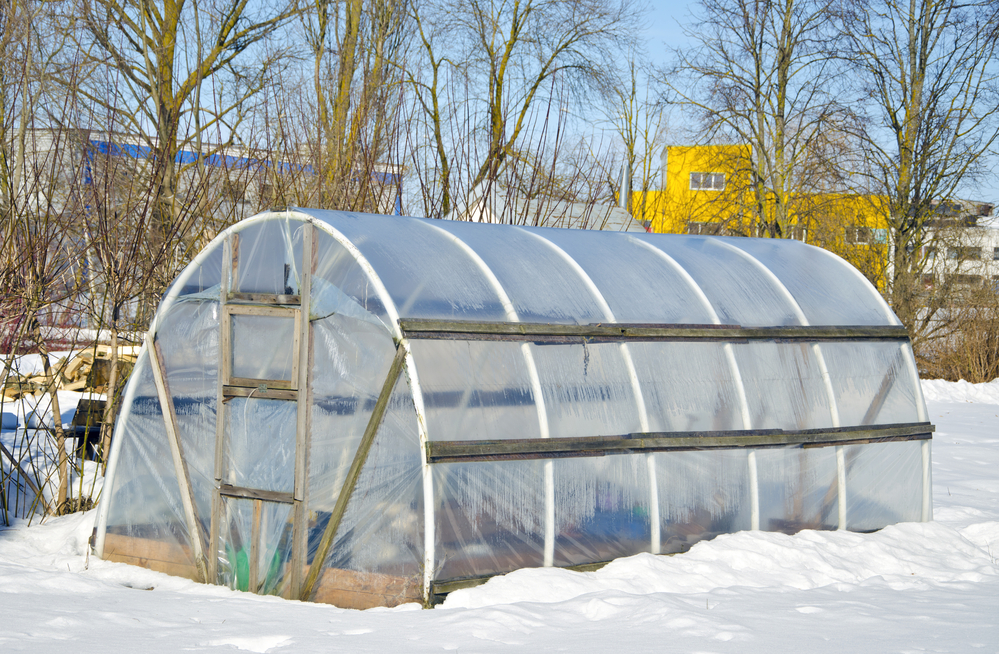
When should I plant winter vegetables?
Begin planting seeds for winter vegetables as soon as the weather is suitable for good germination.
In our garden zone 8a (North Carolina), we begin planting in September through late October while the weather is warm.
The best time for planting is before the daytime temperature drops below 65 degrees Fahrenheit because the soil is still warmed by the sun.
Preparing the Garden for Winter Vegetables
Start by amending your soil with organic matter and work in a good layer of compost.
Once you clean out the summer garden, fertilize the soil and mulch with grass or chopped comfrey or other crops.
I implement our garden beds with wood ash and rabbit or composted cow manure first, then add a layer of mulch.
Heirloom Winter Vegetables
If you are looking for a list of the best vegetables to plant in the fall, start with heirloom winter vegetables.
Heirloom seeds have survived generation after generation. That means they are the strongest, fittest variety of their ancestor plants.
Hardy, non-GMO, open-pollinated plants that are so wonderful they are worth saving. We want heirlooms in our gardens!
Heirlooms tend to be harder, more diverse, and yield higher than other vegetables. Look for local heirlooms that are adapted to grow in your climate. Those tried and true varieties produce as expected, without disappointment.
Plus, they give you a taste of what it was like growing food in the past before hybridization. Heirloom vegetables deliver a diversified and nutrient-rich profile of vitamins, minerals, and vital polyphenols.
Should I buy organic seeds?
Organic seeds means that the parent plants that produced those seeds were raised with organic methods. That means no synthetic fertilizers, herbicides, or pesticides were applied to the plants.
No one wants harmful sprays on their foods, but would it matter to buy organic seeds? In today’s world, no matter how hard we try, we cannot avoid contact with pesticides and other toxicities.
However, you vote for the world you want to live in with every swipe or your credit card. Organic seeds certified by the National Organic Program (NOP) of the USDA promote sustainable agriculture practices.
So, when you buy organic seeds, it is not just about the few extra dollars spent. It is about making a difference in the future of humanity. Without such efforts, resources will eventually run out, and that will have disastrous consequences. Read more about the NOP here.
We Swear by These Businesses That Sell Heirloom Seeds!
You can find most of the plants listed in this article at one or more of the stores below.
Shopping Tips for Finding Heirloom Seeds
Shop local and small whenever possible! Look for nurseries near you. Visit Facebook Marketplace and see if any neighbor’s have seeds to sell. Check out our garden store. too! We sell seasonal heirloom seeds and plants.
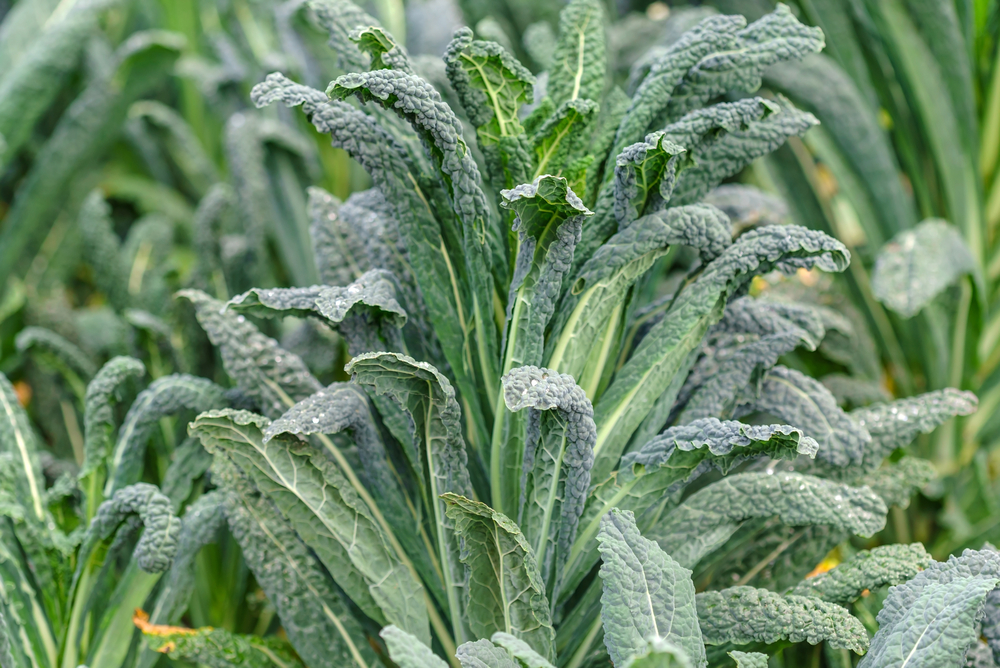
Long-Lived Winter Vegetables & Herbs
There is nothing better than plants that come back again and again! Some are long-lasting perennials or self-seeding biennials, and anything with a long life in the garden is noteworthy!
Especially when they are favorite foods! Here is a list of perennial and biennial winter vegetable plants in warmer zones. In cooler zones, you may need to replace them each year.
The best hardy winter vegetables for fall planting and winter – early spring harvesting include the following:
- Perpetual Swiss Chard or Perpetual Spinach
- Good King Henry
- Nine Star Broccoli
- Sweet Potatoes
- Daubenton (Heritage) Kale
- Thousand Head Kale
- Sorrel (Green de Belleville, Bloody Dock (Red))
- Rhubarb
- Asparagus (White, Precoce D’argenteuil, Connover’s Collosal, Mary Washington)
- Lovage
- Cilantro (Slow-bolt, Indian Coriander, Dwarf Lemon)
- Parsley (Mitsuba)
- Oregano (Wild Zaatar, Vulgare)
- Bunching Onions
- Garlic
- Rosemary
- Thyme (Orangelo, Wild, Common)
- Garlic Chives
- Collard Eggplant (Gboma)
- Fennel (Florence, Bronze
- Lemonbalm (Green, Lemoncello)
- Mints (Catnip, Mountain Mint)
- Leaf Chicory (Castelfranco Radicchio)
Perennial Herbs
Lots of herbs will grow year round in warmer zones. Although they taste best in spring or summer, we still harvest from our kitchen herb garden in the winter.
Plant perennial herbs earlier in the fall or late summer, and they will develop a sound root system to ensure survival.
Plan to cover onions and tender herbs from frost to have more time to harvest.
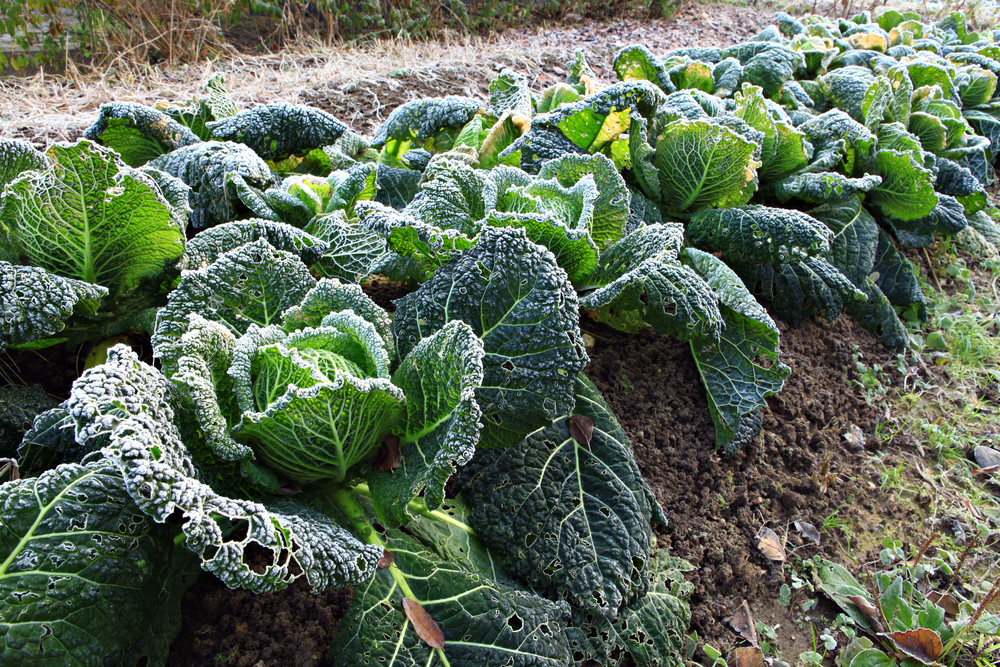
A Comprehensive List of Winter Vegetables to Plant This Season
Growing winter vegetables that are cold-tolerant is easy with good seeds and a little planning!
Lettuces
There are so many kinds! You can plant these thick, broadcast them, or plant them in a tidy row. You can’t go wrong with cut-and-come-again lettuces. Just know that they are not frost-tolerant and do best in a greenhouse or protected area during the coldest winter temperatures.
Growing lettuce in summer can be extremely difficult. If the temperature is high, the lettuce will quickly bolt.
Lettuce prefers cooler temperatures a few varieties can survive chilly temperatures. Best varieties for cooler weather – Merveille des Quatre Seasons is an enchanting fusion between seasons.
- Romaine (Crisp Mint, Red Romaine, Forellenschluss)
- Red (Bronze Beauty, Lollo Rossa, Lunix)
- Small Heads (Little Gem, Tom Thumb, May Queen
- Two-toned (Merville Des Quatre Saisons, Strawberry Cabbage)
Garden Greens
A must-have. If you grow only one type of food this winter, let it be greens. They are packed with nutrients, and growing your own is much healthier.
Collard Greens
This bitter green is a staple in Southern Cuisine and belongs to the kale family. They have similar bitter qualities to those of kale and cabbage.
Collard greens are not only tolerant of cold temperatures, but frost will improve the taste! The bitter taste of collard greens is also a result of a very high amount of calcium, potassium, and vital nutrients like Vitamin C and B6.
More Winter Vegetable Greens to Plant This Season!
- Arugula (Wild Rocket, Common, Wasabi)
- Spinach (Bloomsdale, Galilee, Giant Noble, Merlo Nero, Red Malabar)
- Mustard (Japanese Giant, Chinese Giant, Komatsuna, Bald Head
- Chard (Vulcan, Fordhook Giant, Oriole Orange, Silverbeet, Perpetual Spinach)
- Asian Greens (Suzhou Baby Bok Choy, Winter Choy, Purple Lady, or Tatsoi)
- Dandelion (French, Italiko Rosso)
- Mizuna (Japanese Pink, Red, Early)
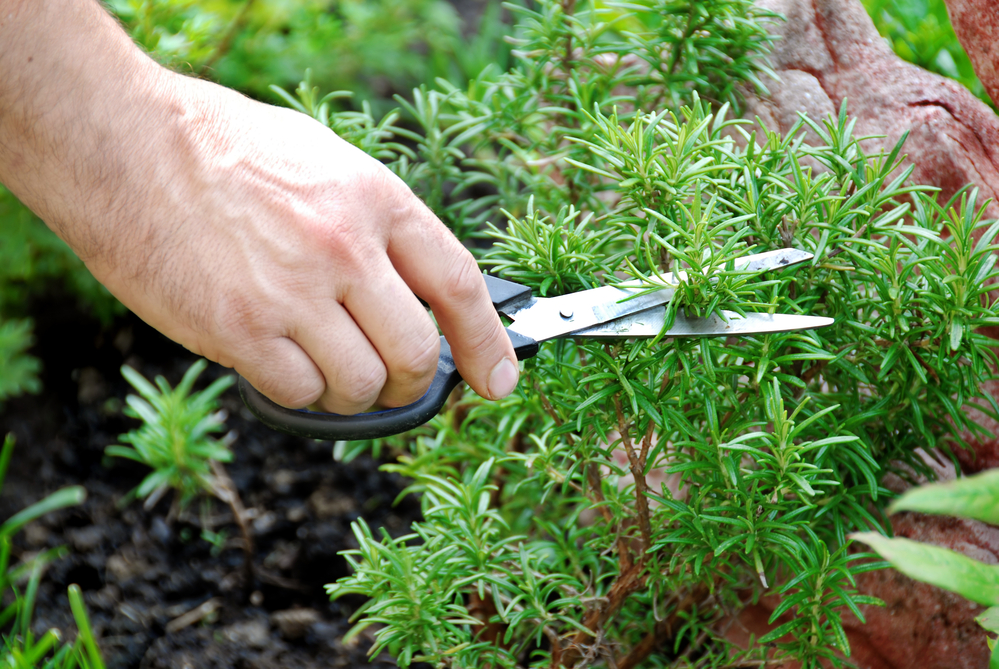
Winter Root Vegetables
The most rewarding harvest always comes from root vegetables! It is so exciting to see what is under the earth!
Carrots
Our carrots are affectionately called candy carrots as they taste sweeter after hard freezes and freeze well. Like other crops like kale or beets, their flavor improves during chilly winter months after some frost.
We sow seed on winter carrot crops between late August- late September and mulch in late November to add more protection from snow.
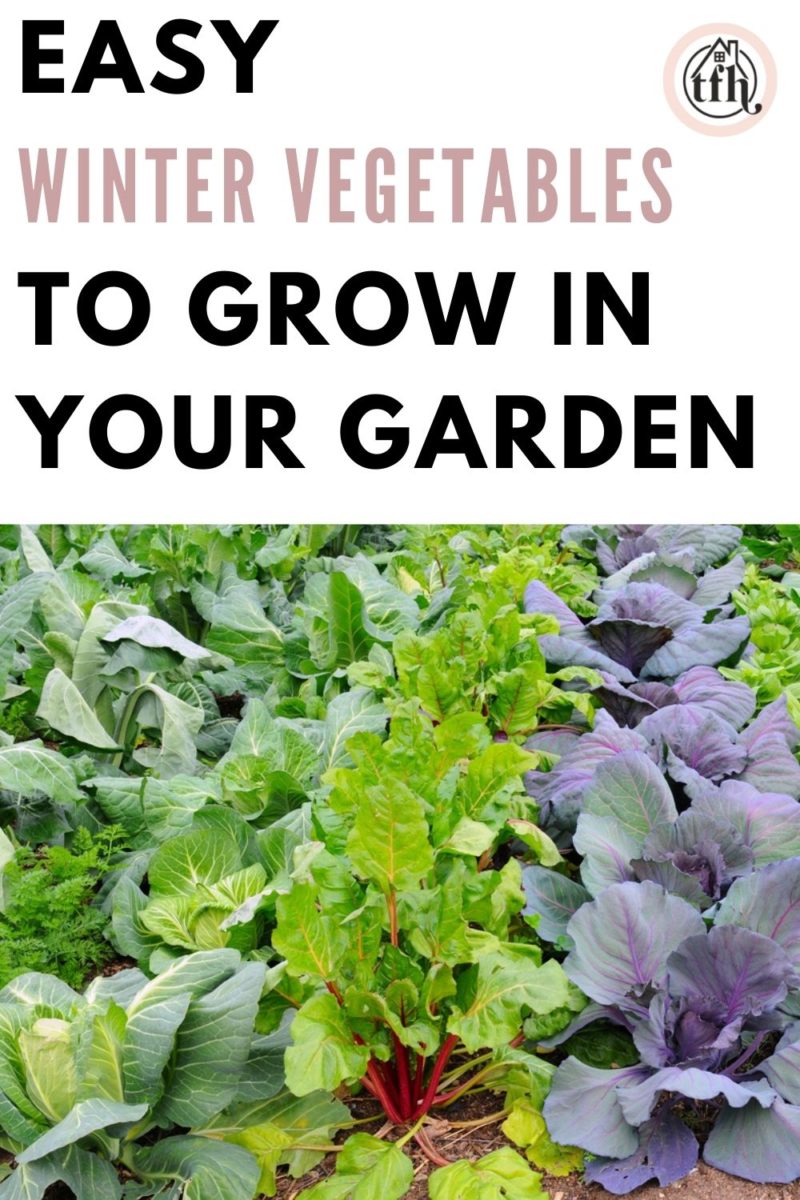
Parsnips
Winter is a perfect period for growing these vegetables because they grow sweeter with lower temperatures.
Parsnips contain a mild earthy flavor which complements the warm seasonal dishes. They contain high-quality soluble fatty acids, vitamin B, and mineral vitamins and nutrients, including manganese, potassium, and magnesium.
Try mixing them in soups baked on cakes or roast – it’s a versatile vegetable that tastes good in various ways.
Turnips and Rutabagas
Mild, sweet, and often overlooked—turnips and rutabagas have many similarities. Turnips are incredibly delicious in substitution for mashed potatoes. They also make an excellent alternative to fries!
Rutabagas are a strange hybrid plant of cabbage and turnips. It usually prefers cooler temps, making it an ideal addition to the winter garden. Try them roasted with other vegetables for a perfect side to any meal.
Plant These Winter Root Vegetable Varieties!
- Beets (Golden, Mammoth Red Mangel, Detroit Dark Red, Bassano, Albino)
- Carrots (Kyoto Red, Black Nebula, Jaune Obtuse Du Doubs, Oxheart, Parisienne)
- Fall Radish (Chinese Red Meat, Black Spanish, Pusa Jamuni)
- Rutabaga (Navone, Marian)
- Turnips (Tokinashi, Hida Beni)
Brassicas
The Brassica family contains many health-promoting plants that everyone needs in their diet. Brassicas are rich in antioxidants and polyphenols that stop cancer cells in their tracks.
They also contain many vitamins and minerals like Vitamin E, which is necessary to prevent degenerative diseases like Alzheimer’s. Also, consuming nutrient-dense plants beats taking supplements.
Plants contain complex networks of phytochemicals. Our bodies assimilate plant nutrients in ways we are only beginning to understand. Importantly, there is evidence that vitamin E supplements could increase the risk of prostate cancer.
Broccoli
You may never consider broccoli a winter vegetable as the cruciferous food is readily available in any season.
Despite its low temperatures, broccoli is incredibly nutritious, and flowers have excellent flavor. You can prepare it in so many ways, and it freezes well.
This is very good considering that broccoli’s nutritional richness has many health advantages: It helps lower cancer risk and inflammation and improves digestion health.
Cauliflowers
Everybody loves cauliflower, right?! They are very versatile and have a milder flavor compared to other popular brassica vegetables.
These flowering cruciferous plants resemble broccoli, but their flavor is slightly sweeter. Cover them with cheese, turn them into “rice,” or roast them – there are many ways to eat cauliflower!
Plant these Brassica Varieties in Your Winter Vegetable Garden
- Brocolli (Rapini, Early Purple Sprouting, Yod Fah)
- Brussel Sprouts (Red Rubine, Long Island Improved, Groninger)
- Cabbage (Red Express, Glory of Enkhuizen)
- Cauliflower (Romanesco Italia, De Jesi, Durgesh, Purple of Sicily)
- Chinese Cabbage (Granaat, Hilton)
- Kale (Nero Di Toscana, Thousandhead, Scarlet, Trochunda, Red Ursa, Walking Stick)
- Kohrabi (Superschmelz, Early Purple Vienna)
- Mibuna
This post was all the heirloom winter vegetables to grow this season!
How Can I Learn More About Sustainable Nutrition?
You might want to check out a few resources for more information:
1) Community-Supported Agriculture (CSA): CSA programs allow consumers access to organic produce directly from farmers by paying a set fee upfront. Search here for one in your area.
2) Farmers Markets: These markets help local farmers sell their goods, often through vouchers or credits for food bought from farmers at the market. Seek yours out today!
3) Organizations like Slow Food and Chefs Collaborative promote seasonal eating and support local food initiatives.
4) Educate yourself! Keep reading articles like this one, and join the TFH community to stay in the loop!
5) Read This Post Next: All About Sustainable Nutrition
